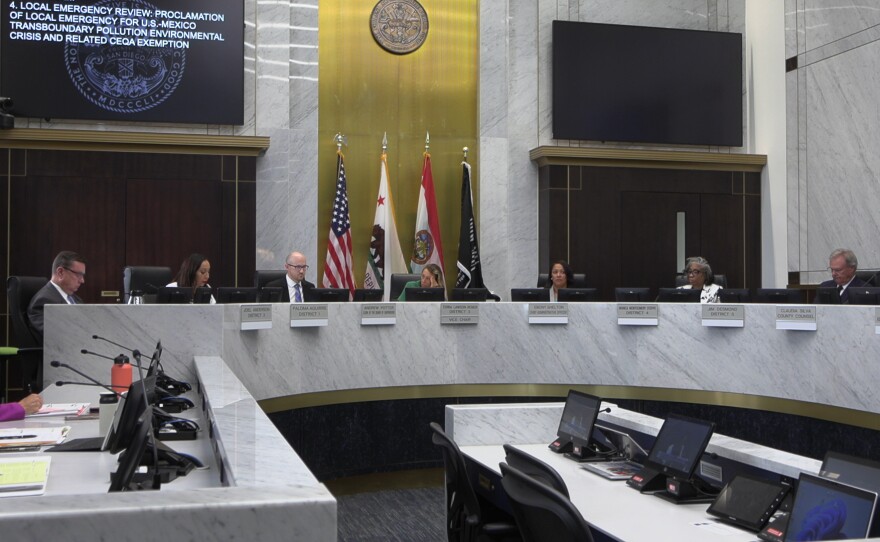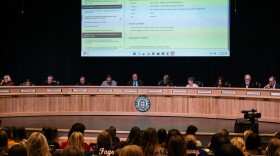San Diego County Board of Supervisors Chair Terra Lawson-Remer and Vice Chair Monica Montgomery Steppe Tuesday will renew a proposal to tap into the county's reserves to offset cuts coming from Washington, D.C.
The supervisors say the proposal to be heard at their 9 a.m. meeting would protect the county's citizens from the Trump administration slashing of health care and food assistance programs by using ample reserves. Officials have said that Trump's One Big Beautiful Bill Act, which passed Congress earlier this year, is projected to cost the county more than $300 million each year in additional costs or lost revenue.
According to Lawson-Remer and Montgomery Steppe, nearly 400,000 San Diegans risk losing health care, and 100,000 could lose food assistance.
"We can't let San Diego be dragged into a fiscal storm by Washington," Lawson-Remer said. "This reform is our bridge — protecting health care, food and public safety now, while we work toward long-term solutions to keep San Diegans healthy, fed and safe."
Defenders of the bill say it delivers conservative economic principles, tax cuts for families and businesses, enhances border security, and will boost economic growth.
The supervisors' proposal would make two updates to the county's reserve policy:
— Modifying the reserve target calculation to two months of operating expenses only, reducing said target from $973 million to $945 million; and
— Recognizing all locally controlled reserves, not just "unassigned" funds.
Both of these changes, which the supervisors say follow best practices, would open up around $380 million in "flexible, Board-controlled reserves that could help stabilize services in the face of federal or state cuts, or during an economic recession over the next four fiscal years," they said.
"This is about smart fiscal governance," Montgomery Steppe said. "We're not touching long-term savings for frivolous expenses; we're making sure that when families need us most, we have the tools to respond."
The move follows a nearly identical proposal in April to unlock a significant portion of reserves which failed by a vote of 2-1-1.
In a statement, Lawson-Remer said the previous vote "wasn't just a procedural setback — it was a choice to tie our hands while Washington walks away from its responsibilities."
"We offered a common-sense solution to safeguard San Diego's most vulnerable communities," she said. "Instead, our Republican colleagues chose polemics and posturing over preparedness."
However, the results of July's special election to fill the seat vacated by Nora Vargas has changed the calculus. Newly elected Supervisor Paloma Aguirre is also a Democrat on the ostensibly nonpartisan board.
At the time, Supervisor Jim Desmond was the sole no vote (Supervisor Joel Anderson abstained). He said recently that he would vote no again.
"San Diegans are already paying some of the highest housing, energy, and grocery costs in the nation," he said. "Families and seniors are stretched to the limit. And yet, while people struggle to pay for gas, food, and fire insurance, politicians are voting to line government's pockets with your money.
"Unlocking hundreds of millions today might sound good on paper, but tomorrow it leaves us vulnerable. It drains the very reserves meant to protect taxpayers in times of crisis, forces higher borrowing, and opens the door to higher taxes to fill the gap."
The renewed proposal would set up guardrails for using the reserves, only allowing funds to be accessed in tough economic times and requiring an additional vote by the board.
Lawson-Remer and Montgomery Steppe say no more than 25% of the newly available reserves would be available in a single fiscal year.






